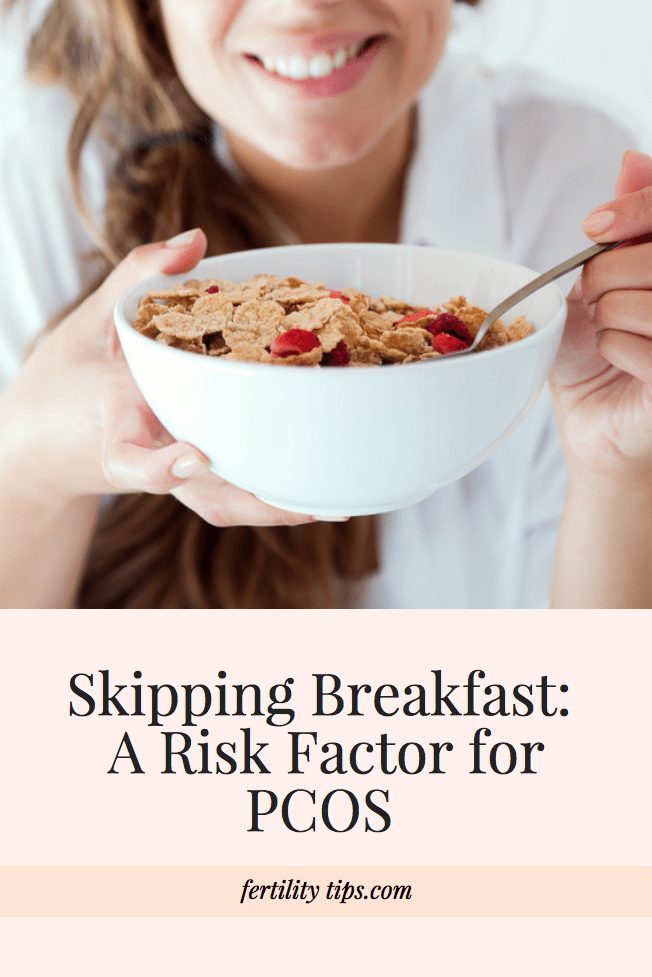Polycystic ovary syndrome, (PCOS) affects many women and has a great impact on fertility. Not skipping breakfast could help ease symptoms and increase fertility.
What is PCOS?

Symptoms of Polycystic Ovary Syndrome
Symptoms range from woman to woman and many are mild at first. Some of the symptoms include acne, extra hair on the face and body, trouble losing or gaining weight, irregular periods and fertility problems.
How is PCOS diagnosed?
A doctor will diagnose polycystic ovary syndrome by getting information about menstrual cycles and past health symptoms. They will also check to see if the individual has a healthy BMI or if they have any of the other symptoms like excessive body hair. Doctors will also check blood sugar and insulin levels as well as other hormone tests to rule out any thyroid or gland problems. They may also do an ultrasound to look for cysts on ovaries.
Causes of Polycystic Ovary Syndrome
The exact cause of polycystic ovary syndrome is unclear and genetics may be involved since doctors see that this tends to run in families. There is a higher chance of developing it if other women in the family have it. Since the causes are unknown, there are many studies to figure out what types of things can cause this. One of the studies done shows that regularly skipping meals, mostly breakfast, can have an effect on polycystic ovary syndrome and fertility. Many women that have polycystic ovary syndrome can be insulin resistant, which means that their bodies produce too much insulin, which then prompts the production of testosterone and decreases fertility.
Why Skipping Breakfast is Bad

During the study, the women were broken into two groups and both groups consumed 1,800 calories a day but the big breakfast group consumed 980 calories for breakfast and 190 categories for dinner, while the second group did the opposite and had a bigger dinner instead of breakfast. After 90 days doctors measured ovulation and menstruation. While neither group had a change in body mass index, the group that had a bigger dinner still had higher levels of testosterone and insulin.
The big breakfast group had a 50 percent increase in their ovulation rate and doctors think that consuming a bigger breakfast can also help alleviate some of the other symptoms that are common with polycystic ovary syndrome. A bigger breakfast could also help prevent Type 2 diabetes, which is another health condition that can develop in women due to polycystic ovary syndrome.
Treatment of Polycystic Ovary Syndrome
There is no specific treatment for polycystic ovary syndrome but regular exercise and eating healthy foods help. Over the counter medications can help with acne. Since dealing with polycystic ovary syndrome can be hard, some women experience depression or sadness. They should seek treatment from a doctor or counselor.




